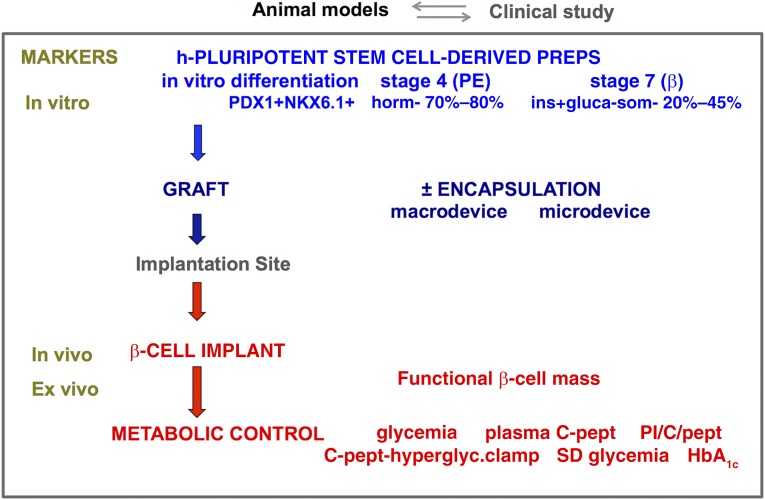Figure 1.
Combination of markers to assess human stem cell-generated β-cell implants. Human pluripotent stem cell-derived grafts were shown to generate β-cell-containing implants in mice (see text for references). Grafts consisted of differentiation stage 4 or stage 7 cells, characterized by their respective in vitro markers for pancreatic endoderm (PDX1+/NKX6.1+ hormone negative) or for monohormonal β cells (PDX1+/NKX6.1+/INS+). They were implanted without encapsulation in the fat pad, kidney capsule, or subcutis, or they were macroencapsulated in the subcutis or microencapsulated in the peritoneal cavity. β-Cell implants were examined by in vivo and ex vivo markers. Their functional β-cell mass is a key read-out as it determines metabolic control, for which plasma C-peptide, proinsulin/C-peptide ratio, and glycemia serve as markers in mice. A similar assessment can be conducted in patients, where additional data on hyperglycemic clamp, glycemic variability, and HbA1c will indicate whether treatment goals are reached. Abbreviations: PE, pancreatic endoderm; PI/C-pept, proinsulin over C-peptide molar ratio.

